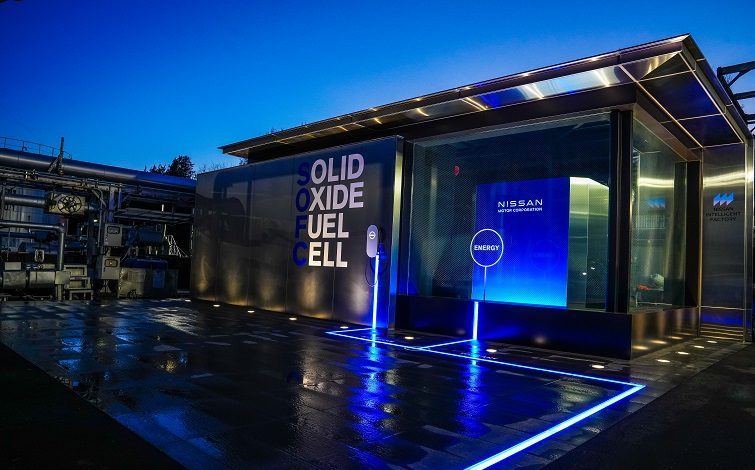Nissan Motor has developed a solid oxide fuel cell (SOFC) powered by bio-ethanol for stationary applications. Trials are underway at Nissan’s Tochigi Plant in Japan to enhance power generation capacity, aiming for full-scale operations by 2030.
Building on its experience in developing vehicular propulsion systems with SOFC technology since 2016, Nissan is now focusing on stationary power generation. SOFCs can generate electricity by reacting various fuels – including ethanol – with oxygen.
Future applications will focus on enhancing cell strength through metal-supported cells, which Nissan says will reduce startup and shutdown times and enable a better response to fluctuations in output demand.
The stationary power generation system will use bio-ethanol produced from sorghum, jointly developed with Binex, starting in 2025. Although sorghum bio-ethanol emits CO2 during power generation, this is offset by CO2 absorption during sorghum growth, contributing to a carbon-neutral cycle with minimal net CO2 emissions.
“There are major changes occurring in the transition from the internal combustion engine to electric vehicles. Nissan is taking up various technological development challenges in new areas, and SOFC power generation is one of our strengths. We will continue to contribute to the promotion of electrification and efforts toward carbon neutrality with Nissan-unique, innovative technologies,” said Kazuhiko Murata, corporate vice president responsible for powertrain production engineering and development at Nissan.
For more on fuel cell technologies, please click here.


